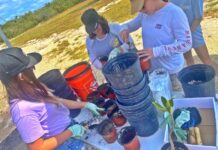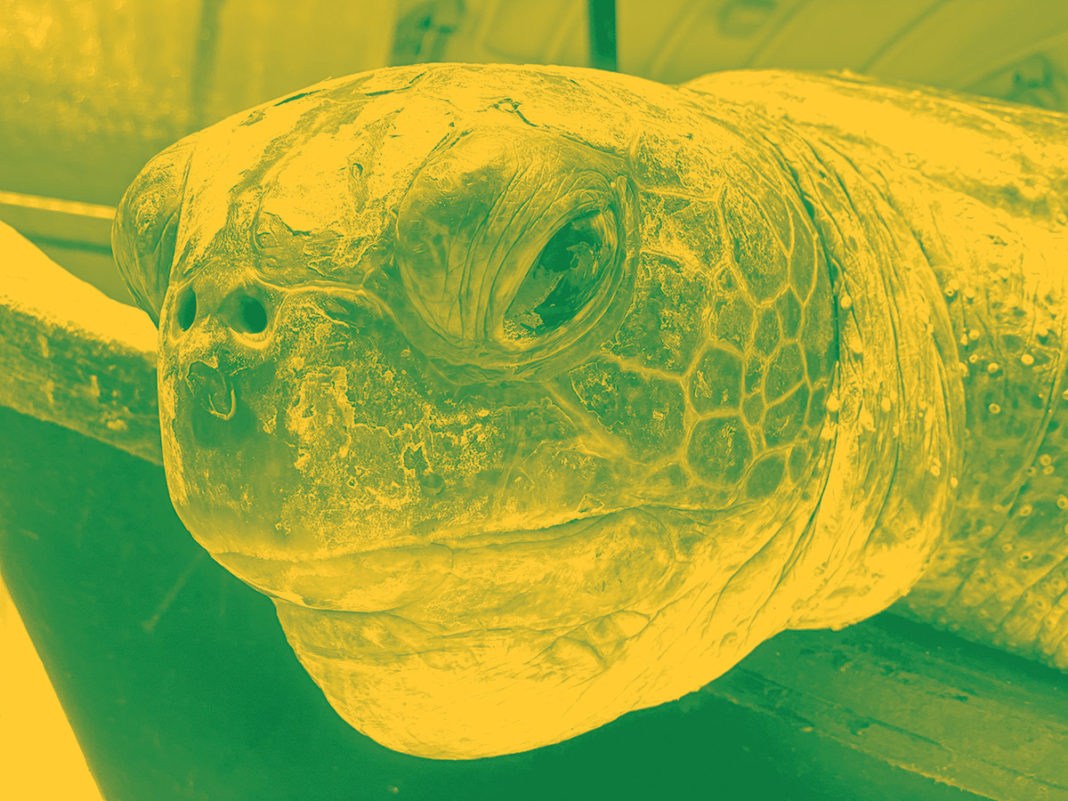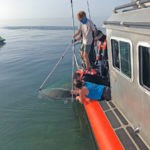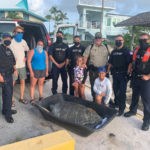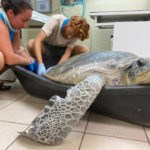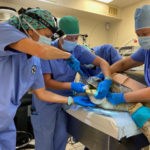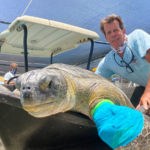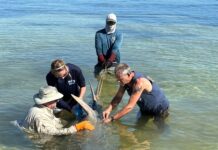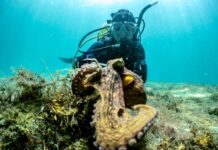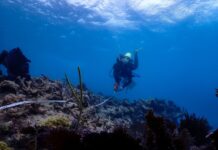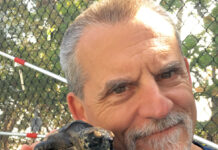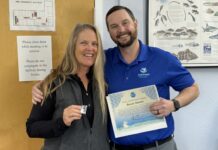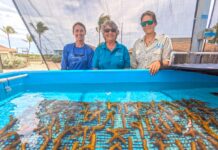“It takes a village!”
That’s what Bette Zirkelbach, manager of the Turtle Hospital in Marathon had to say about the synchronized efforts to rescue a 266-pound adult male green sea turtle last week.
On the evening of July 9, a recreational boater saw Shelly in distress and called for help.
The little girl who first saw the sea turtle named him “Shelly,” and the name has stuck.
Along with staff from The Turtle Hospital, FWC Officer Bobby Dube responded to the injured sea turtle about 5 miles offshore of Conch Key, bayside. A U.S. Coast Guard boat from Marathon helped with Shelly’s safe recovery.
The turtle was brought to shore at Outdoor Resorts and transported to the Turtle Hospital for treatment and surgery.
“He was entangled in an abandoned anchor line and may lose his front flipper,” Zirkelbach assessed the morning after the rescue.
On Monday, the Weekly caught up with Zirkelbach for an update.
“Sadly, we are prepping Shelly for a flipper amputation surgery now,” Zirkelbach told the Weekly. “This ancient mariner has been swimming our oceans for 50 to 60 years, so it is hard to see him lose a front flipper to an anchor line entanglement.”
According to NOAA, green sea turtles are one of five endangered marine turtles found in the Florida Keys. They are the largest of the hard-shelled sea turtles, with adults growing to more than three feet long and weighing up to 350 pounds. Healthy green sea turtles can expect to live from 80 to 100 years.
Entanglements in discarded or lost fishing line are a big problem worldwide for wildlife. The “ghost” lines, nets and traps continue to float around the oceans catching animals like sea turtles, sharks, whales, dolphins and sea birds, eventually leading to many of them drowning.
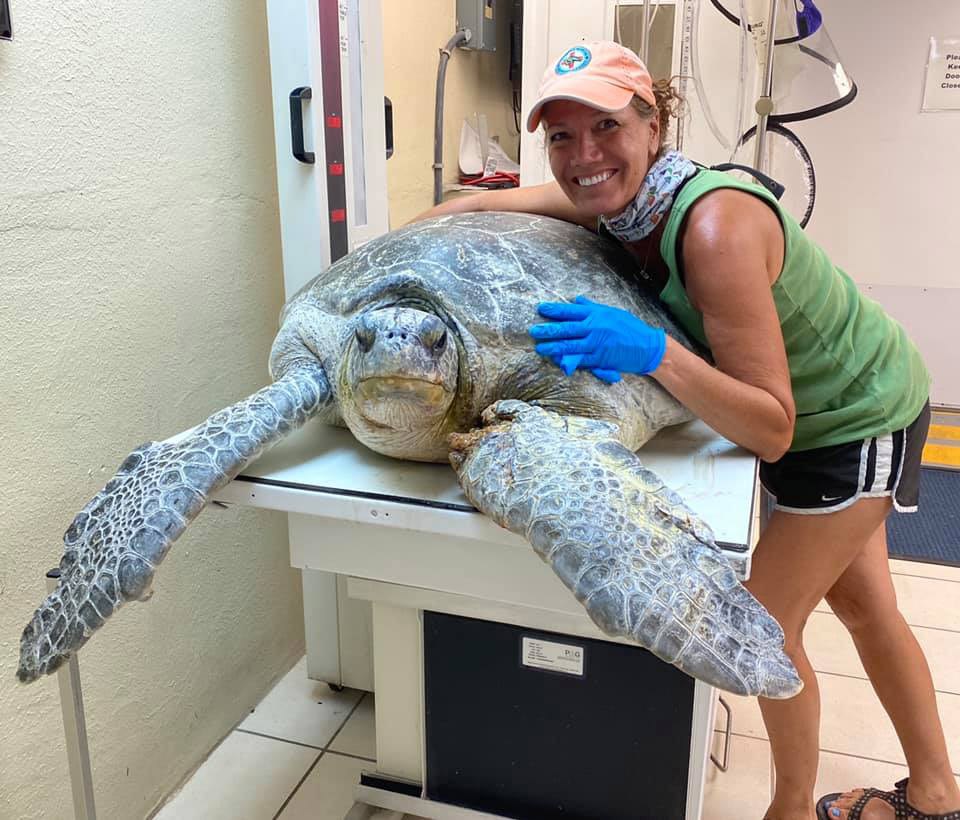
“We have to do better in keeping our oceans safe for all our marine life,” Zirkelbach said.
Shelly was lucky for the collaborative effort taken to rescue him, involving concerned citizens, FWC, the U.S. Coast Guard, Monroe County Sheriff’s Office and the Turtle Hospital.
“Gratitude all around to the boaters that took the time to call in this sea turtle in distress, FWC, USCG Marathon Station, Monroe County Sheriff and the incredible team at the Turtle Hospital!” Zirkelbach said. “We are lucky to have an incredibly supportive community when it comes to protecting our wildlife.”
If Keys boaters see a distressed sea turtle, they should call The Turtle Hospital’s 24-hour stranding hotline 305-481-7669.
